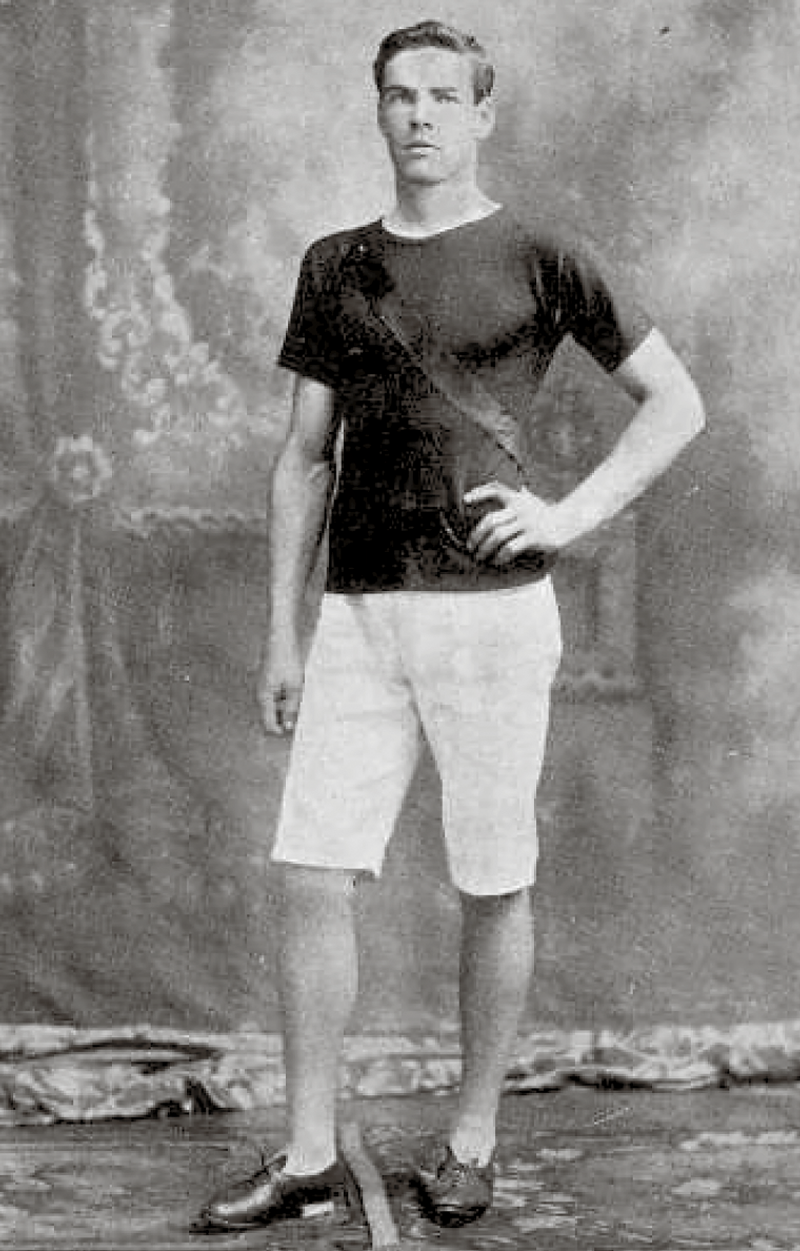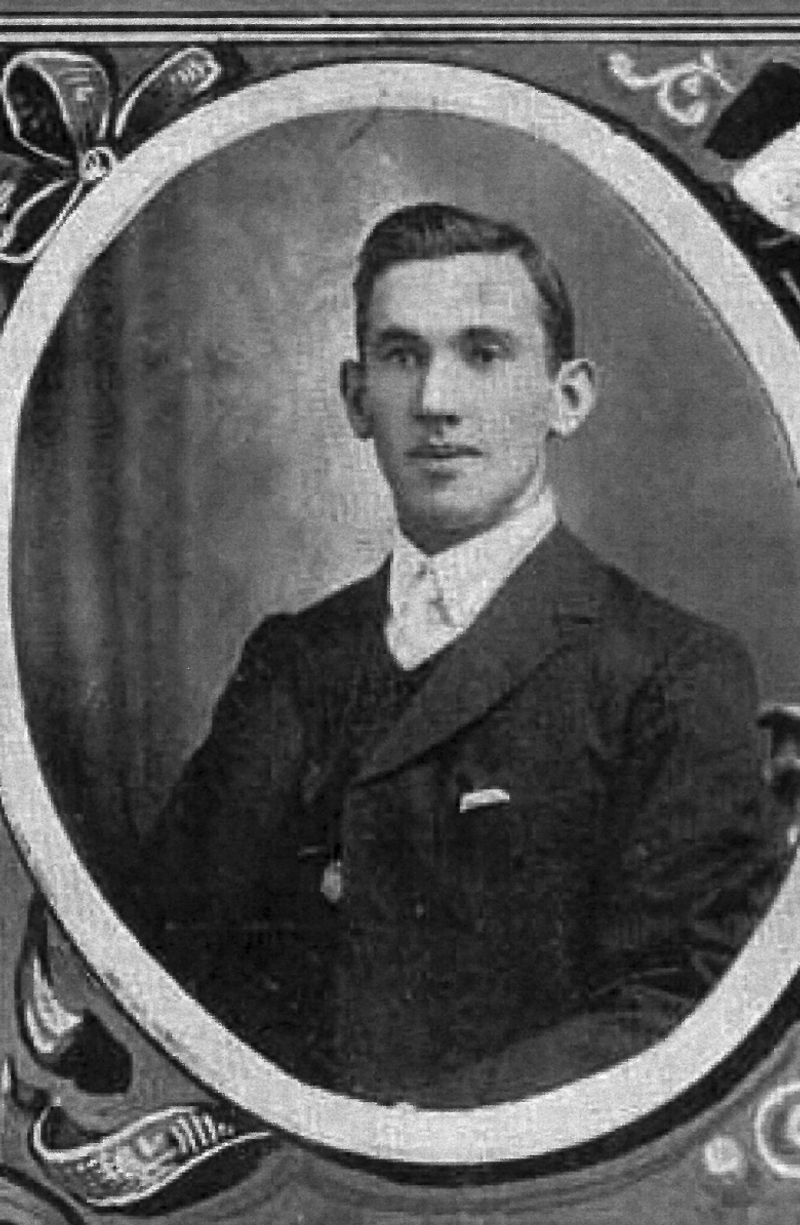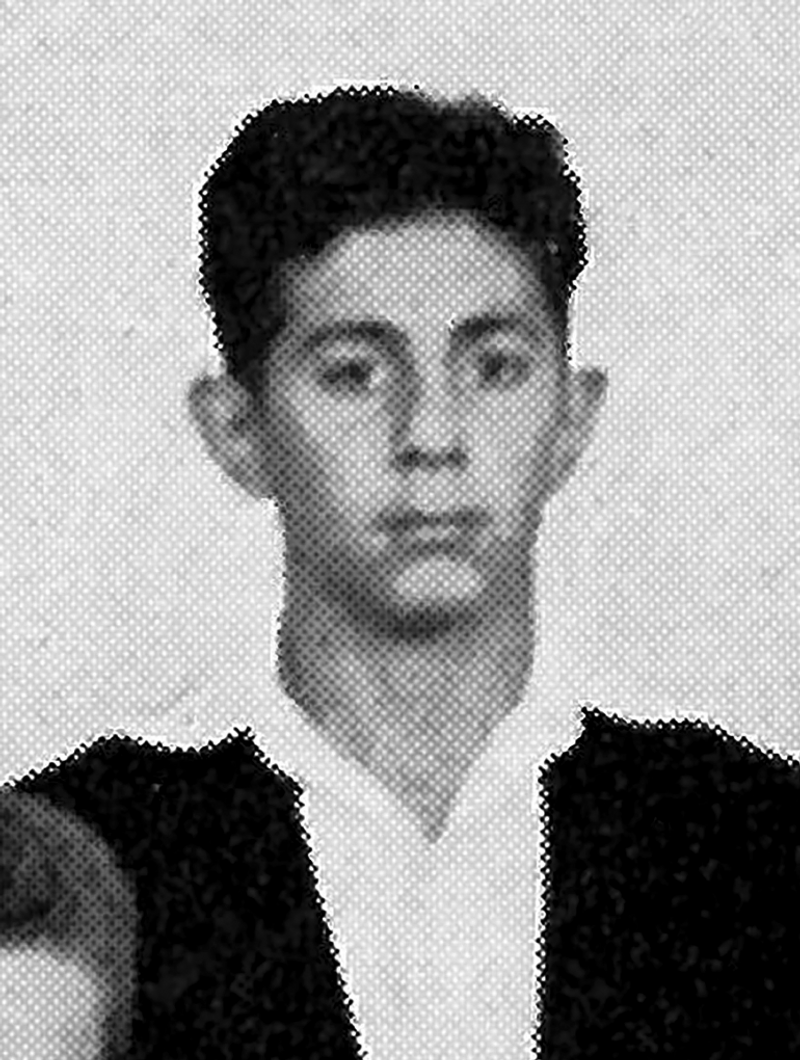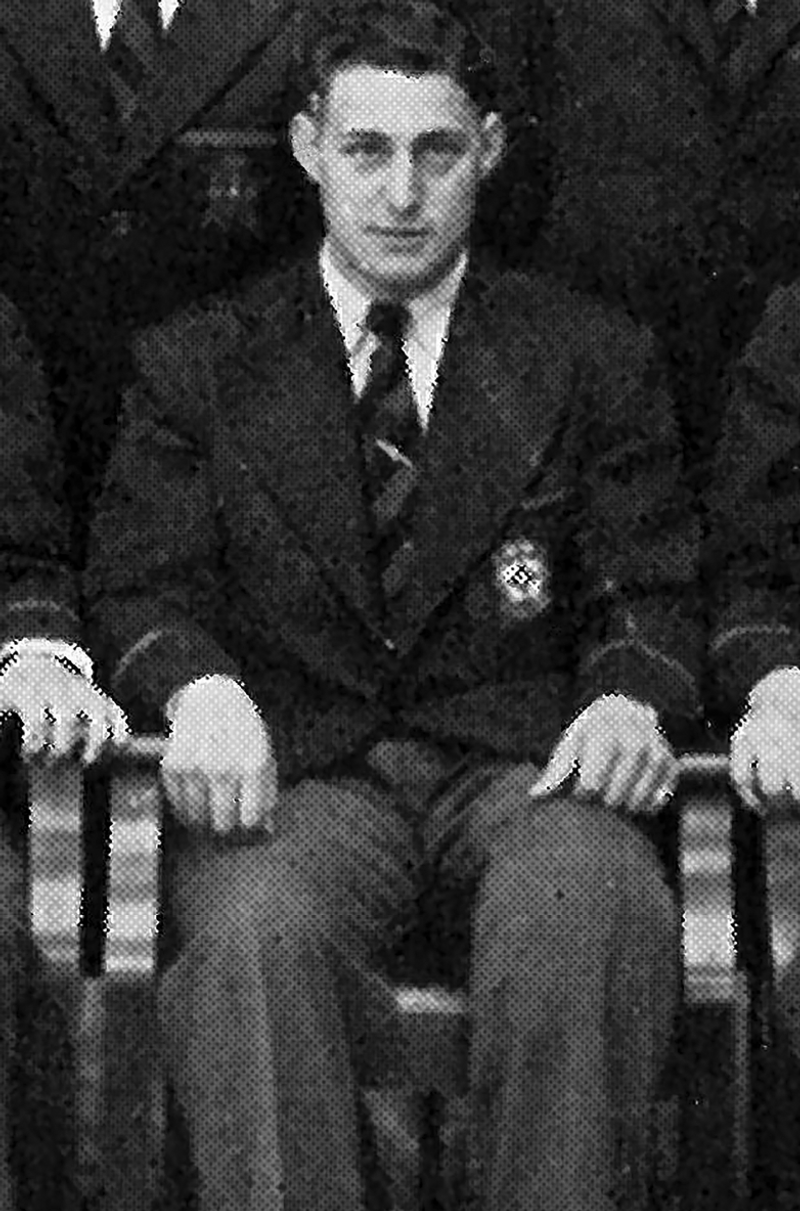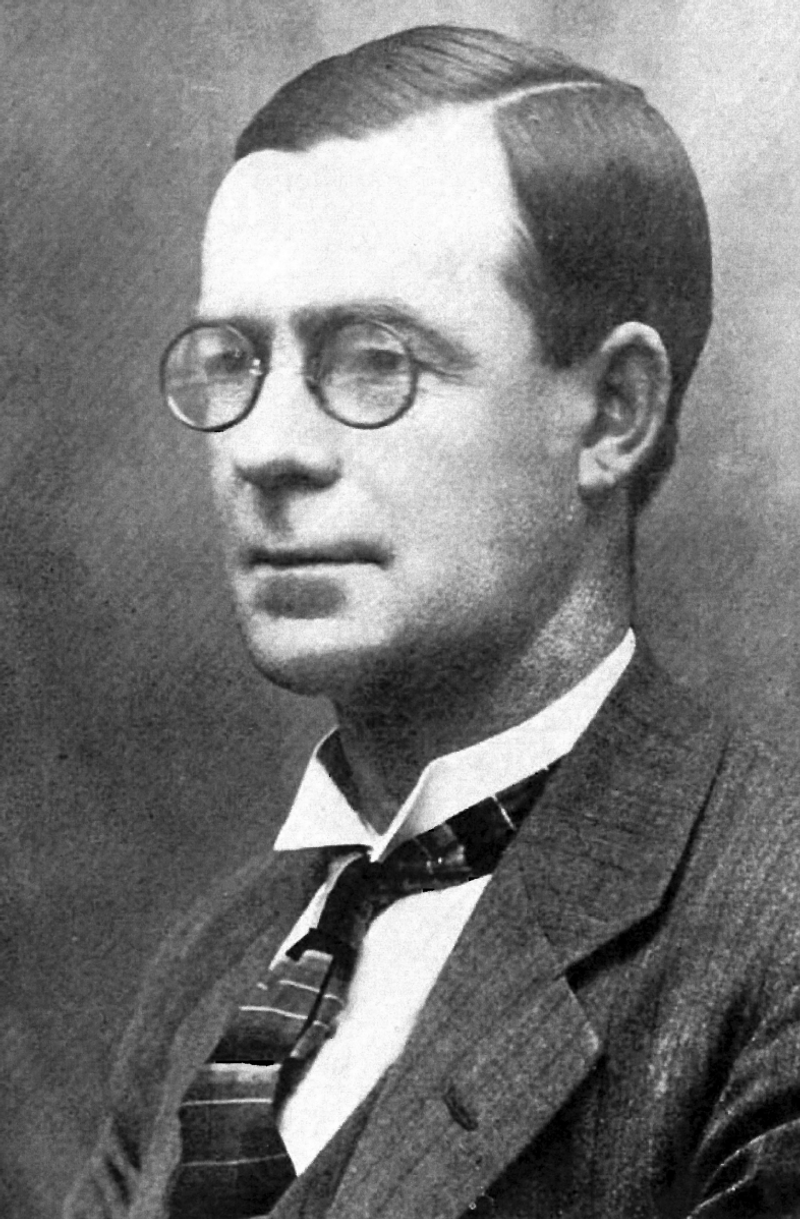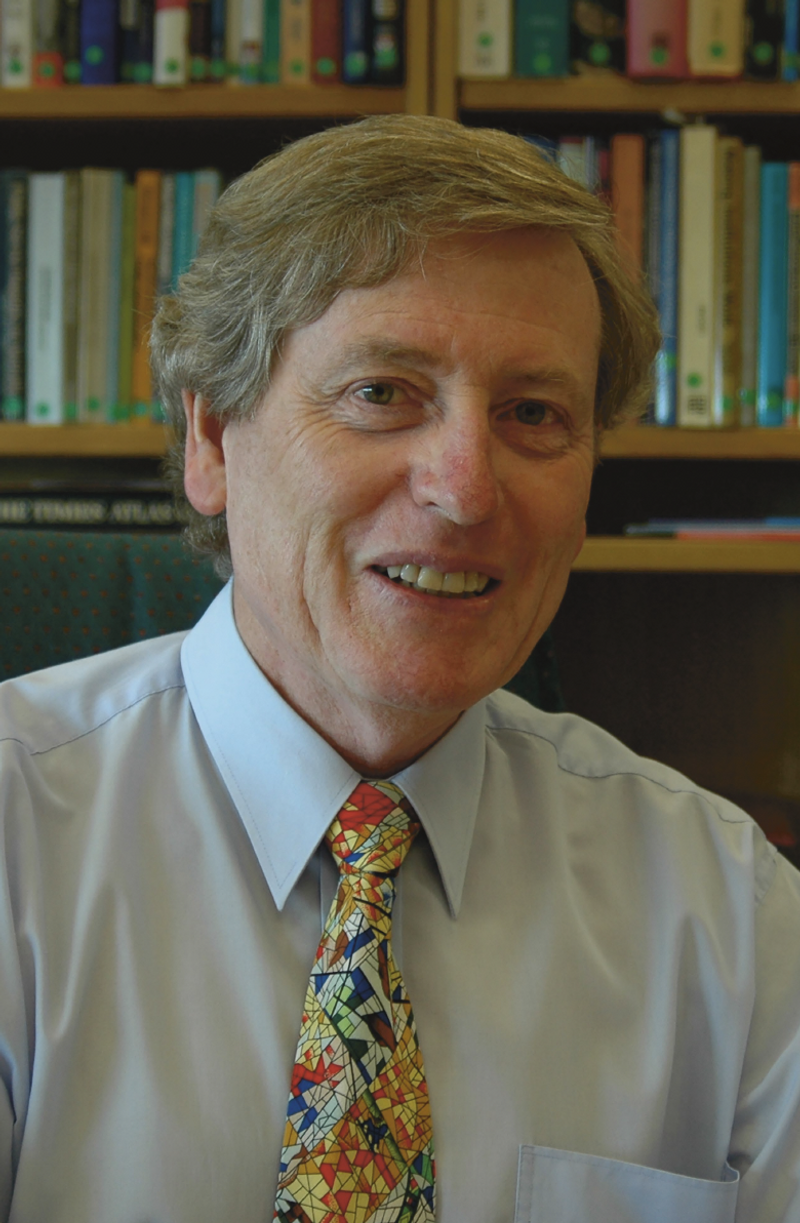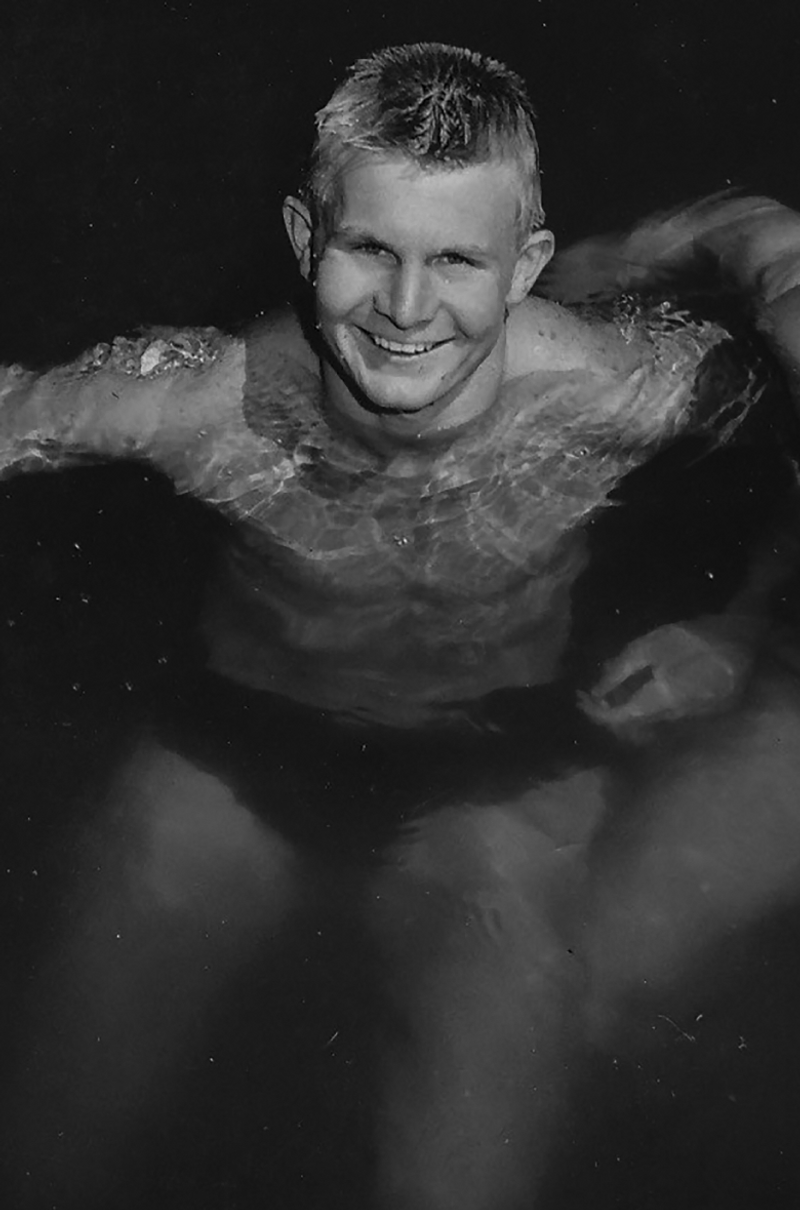Contact
Dr JJ (Jack) Savage
Class of 1909
JJ or Jack Savage was by anyone’s measure an outstanding all-rounder who came up through the college ranks of CBC Perth, graduating in 1911. He really made the most of his time and represented the school in Athletics, Football, Rowing, Swimming and Cricket. Academically he was equally impressive during the last three of his eight years at the school, performing regularly in the top ten of the State academically.
He was a member of the East Perth league Football team and held the amateur half-mile running championship for WA. In Rowing, he was stroke of the 1909 team which established the mile record on the river and represented WA in the interstate Rowing championships in Tasmania. So good was he on the field that then Governor Bedford was quoted in The West Australian as saying: “We must get rid of this Savage or the other schools won’t get a look in!” It was his Rowing, however, which nearly got him into deep water during his Rhodes Scholarship. He was asked to row for Oxford in 1912, and would have done so had he not had an unfortunate fall on his bike. That year was famously a good year to miss being in the winning team of the world’s most famous boat race. The weather was so bad both boats sank! Although Oxford emptied its boat and managed to finish. When the race was rerun the following Monday, Oxford won by the biggest margin in its history in similarly terrible conditions.
Jack graduated in Medicine and became a member of the Royal College of Surgeons. Inevitably, the war claimed his career and he served in Ireland in the Royal Air Force. He was a man of principal and ideas who was hugely popular with others because of his wide range of interests and abilities. A press report from The West Australian said at the time: “The most striking impression he had gained while abroad was the remarkable strength of the British Empire and the reputation which it gave its members for financial integrity.”
The unfairness of trade agreements that disadvantaged members of the Commonwealth like Australia struck him as a complete injustice. Although wishing to change the world through politics, he returned to WA and served many years as a much-loved doctor in Narrogin. Very sadly, he died of a heart attack in 1948.
Dr Alexander Juett
Class of 1905
Alexander Juett earned his place as a Rhodes Scholar after a false start at CBC Perth. He was the son of the owner of the Fingall Mine in Day Dawn, then one of the largest and most profitable gold mines in Western Australia. In 1895 when he and his family arrived from South Australia, things were on their way up. The gold mine reached the height of its production in 1905.
Alexander did not take to his new school immediately and returned to the mine the next year at the age of 14 to spend a year working in his father’s mine. A year later he thought better of it, returned and embarked upon a seriously impressive scholastic and athletic career. At Aquinas, he captained the Cricket and Football teams for two consecutive years and rowed with the Junior VIIIs winning team in the Guildford Regatta. Alexander also won the Athletic Championship of the College in 1904. He led the College Gymnastic squad and won the Boxing master Mr Pluto’s prize for Champion Boxer of the College. He was a good shot and represented the Perth Rifle Club in competition. Academically he passed the junior exam for Adelaide University in nine subjects and was ninth overall across WA and SA. In the following two years, he repeated his successes and won a government scholarship. In his last year, he passed the Higher Public Examination in all subjects: Greek, Latin, French, Pure Mathematics and Applied Mathematics. And in the senior general exam, with honours, he placed second in the state.
In his last year, 1906, he was awarded a Rhodes Scholarship to Brasenose College, Oxford where he graduated with a BA MB BCh (Bachelor of Medicine and Surgery) in 1912. Alexander served in France with the Army Medical Corps from 1916 to 1918 and was mentioned in dispatches. He was awarded the British War Medal and Victory Medal with Oak Leaves. On returning to Australia he set up his own medical practice and was notably “one of the most prominent” and “selfless” orthopaedic surgeons.
Being a private and generous person, Alexander shunned publicity and instead quietly got on with fixing the world, donating money and spending time on his favourite causes: The Royal Perth Hospital, Princess Margaret Hospital, the Limbless Men’s Association, the Ex-Servicemen’s Rehabilitation Centre, Fairbridge Farm School and the University Boat Club.
He passed way in 1953 after a life of extreme generosity and achievement across many fields.
Cedric Wyatt
Class of 1957
Cedric Morgan Wyatt was born into the post-recession world of WA to a white father and an indigenous mother. He was taken from his family as a baby to live at the Moore River Native Settlement. As a child of the Stolen Generation, Cedric was profoundly affected by the separation from his mother, making his rise to become a senior public figure all the more impressive. His son, Ben, later spoke of this during the 10th anniversary of Kevin Rudd’s Stolen Generation apology. “It really dictated his passion and determination, he has a fundamental weakness as a result of that disconnection with his own mother and his own family… it was a journey that he was never able to fully recover from.” In fact, he was to meet his mother later in life, but never recovered from the anxiety that separation caused.
From Moore River, Cedric was educated at Sister Kate’s School in Castledare, then at Clontarf and finally enrolled at Aquinas to complete Year 11 and 12. Cedric was a day boy and did well, was universally liked and played in the school’s 1st XVIII. One of his mates remembers him as “full of life with a wonderful attitude”.
After school, he enlisted with the Royal Australian Air Force and moved to Papua New Guinea. He married teacher and librarian Janine Nowotna and had two children Katie and Ben. Cedric possessed a strong sense of caring for others which drove him into education as a teacher then principal and finally a public servant before coming back to Perth in 1976.
Cedric became the head of the then WA Department of Aboriginal Affairs and a fierce protector of indigenous rights. He was made Commissioner of the Aboriginal Affairs Planning Authority in 1989 and Chief Executive of the Department of Aboriginal Affairs, now Indigenous Affairs (1995 to 1999). In the early 2000s he was President of the Shire of Cue and at the same time, he ran the Murchison Club Hotel where he famously declined to serve drinks to those he felt didn’t need them.
He retired but was pulled back into the workforce to work as a Court Officer for the ALS in Laverton when there was no one else to do the job. He was also Chief Executive of the Jigalong community where he was a strong advocate for his people. Cedric had political ambition but was unlucky in the 1996 election when he stood as a Liberal candidate for Kalgoorlie. It was the next generation who would catch that wave successfully. But Cedric was a courageous and tireless advocate for his community.
When he passed away in 2014 at the young age of 74, there was an outpouring of grief from many quarters none more so than the academic world. He had been a Governor of Notre Dame University for seven years. At the time of his passing, the university acknowledged Cedric was regarded as “a much-respected and admired person, leader and mentor who fought for the advancement of the aboriginal community and was driven by a deep resolve for change”.
John Salerian
Class of 1951
John made news from the age of 15 in the local and national papers every time he won a swimming race, and sometimes when he merely competed. Losing his leg at the age of 11 in an accident at a dam near his home in Waroona was certainly an event that changed his life when he hit a concrete block on the way down a 20ft jump. John had a compound fracture and was taken to Pinjarra Hospital in a makeshift ambulance comprised of a “truck with the door unscrewed and used as a stretcher”.
He came to Aquinas College as a boarder in 1947 and learned a great deal more than how to cope with a disability. He was spurred into achieving over and above the odds by a disparaging remark from Br Michael “Reddy” Redmond who spent three or four minutes running the 1st XVIII Football team down when describing a defeat to Hale. He called them useless loafers and said they played like “girls in skirts… they were all useless, just like Salerian”. As John said when telling his story later: “I chewed on that. I thought ‘how can I make him eat his words?’ he was sports master, and I did not play any sport.”
John was the son of one of the state’s most prominent farmers. Driven by a passionate need to prove “Reddy” wrong, John took to practising swimming every day in the long strip of creek at Waroona. He came second in his first race at school after the holidays, and subsequently excelled as a swimmer, making headlines regularly. John captained the team in his leaving year and was also a prefect.
Incredibly, rather than take an office job as doctors had advised him to do, as the only son of a farmer John returned to Marri Farm at Waroona and continued dairy farming until 1978. From then, he switched to beef production and bought a school bus which he ran for many years. He and his wife Val had three daughters and one son, John Jr, who also went to Aquinas College.
Looking back, he sees his fortunes very clearly: “Reddy gets the credit. The best thing that happened to me was what he said. It set me up for the rest of my life.”
Peter Hutchinson

Class of 1976
Peter Hutchinson is one of the most entrepreneurial people to come out of the school. Born in Beverley he was sent off to board at Aquinas in 1972 at the age of 13, a day he remembers well as he tucked himself into one of 100 beds in the Year 8 dormitory. He was a good all-rounder, a prefect who participated in tennis, athletics and football. He rowed in a winning first eight and learned what it was to be part of a team something that no doubt helped him in industry and later life. Although fit he was light in frame and so did not row at a senior level beyond university. This has never dampened his love for the sport and today says “ the discipline and hard work I experienced as a young man has been a major influencing part of my life”.
He graduated in 1981 with a Bachelor of Commerce degree while in residence at St Thomas More College. Peter spent three years in Cape Town where he was the CFO of a large retail department store, meeting his life partner and experiencing the injustices of racial legislated prejudice in apartheid South Africa. These were formative years. He arrived back in Perth during an eventful period and settled to raise his family.
The year 1987 will be forever etched in his mind, not just because of the stock market crash. His career took off after landing an assisting accountants position in finance for Kookaburra’s I, II and III during Australia’s defence of the America’s Cup. He opened a granite quarry in the Kimberley where he assisted the indigenous people of the region register one of the first sacred sites in WA. Fate was kind to him, and he worked hard. His role in two stock market listings one involving hi-tech underwater robots and the other revolving around satellite communication services introduced him to the exciting world of corporations and national and international business.
A 30-year journey through corporate life has had some phenomenal highs and lows culminating in the ASX listing of Forge Group Ltd where he presided over a company with a market capitalisation of $450 million at the time of his retirement, the fruition of 15 years’ of hard work and perseverance in which he built up sales to over $750 million and employed over 2,500 people. Sadly, two years after his resignation and retirement the company collapsed and is a reminder to him that “failure and success are not disparate concepts and which you will only ever experience if you try in the first instance”.
In recent years Peter has turned his experience to co-investing alongside the next generation of businessmen and women with interests in sustainable fishing, mining services, water extraction and plant hire. In his downtime, he enjoys working on the family farm adjacent to where his life journey began.
He reflects: “Good business foundations are created by hard work, good governance, decency to others, trust, honesty and being true to yourself. My early life was surrounded by a loving, humble and decent family and at Aquinas and St Thomas More Colleges where strong Catholic and Christian principles were quietly educating, shaping and reinforcing my thoughts.”
Peter continues to build value and profitable enterprise and will do for some time to come.
Dr John Horan
Class of 1907
John William Horan was the son of a postal worker in Kalgoorlie, the second boy at CBC Perth and the fifth from WA to gain a Rhodes Scholarship. Born in Mitcham, Victoria he and his family moved to Kalgoorlie in 1894. Times were very hard, even though the gold rush was in full swing. On arrival in WA, his father walked seven hours from Southern Cross to Kalgoorlie seeking work to support his ten-year-old son and his five other children. It paid off and he secured a position as a letter sorter at the Kalgoorlie Post Office which helped the family settle. He subsequently worked at the Post Office for over 20 years.
Not surprisingly, persistence ran in the family. John’s parents were devout Catholics. When John received his scholarship his parents were described by Br Nunan as: “…very poor though highly respected and well-informed”. The Christian Brothers in Kalgoorlie could see John’s potential and when moving him to board in Perth they made sure he made the most of his impressive skill set.
Scholastically he was strong in classics, modern languages and literature but strongest of all in mathematics. In sport, he was an outstanding cricketer taking 86 runs in a “combined schools” match and 83 not out in another. He held the batting average top score for that season. John was also regarded as “…one of the safest players among the seniors. His judgement and coolness in the field being notorious among the secondary school players”. He went on to regularly top the state and won many top positions in the much-prized Government Exhibition. In the Adelaide Higher Public University exams, he secured first-class status in Latin, Greek, German, French, English, Trigonometry, Algebra and Geology.
While at Oxford he read medicine at Brasenose College. He returned to Perth after his studies and became a successful doctor. In 1925 he married Kathleen Mary Clune and they had three daughters. Very sadly he passed away too young at the age of 54. But, he will always be remembered for being the first boy from Kalgoorlie to pass the University Primary and by his Headmaster Br Nunan for having: “…the qualities of manhood, truth, courage, devotion to duty, sympathy for protection of the weak, kindliness, unselfishness and fellowship.”
Michael Wood
Class of 1961
Some Aquinians rise to great achievement through hard work, determination and just by getting on with it. Mike Wood is a great example. He and his brother John acquired their phenomenal work ethic from their industrious parents and the drive of their teachers. Mike carved a distinguished career at state, national and international levels and in many disciplines that evolved originally out of his love of economics discovered while at Aquinas College. As a boarder Mike Wood overcame homesickness, returned to school after the first term holiday persevered, and finally excelled. He left as Vice-Captain of the School and Deputy Head Prefect, a Cadet Under Officer, and a member of the First Eighteen for which he received colours.
Mike worked as a journalist on “The West Australian” after completing his economics honours degree at UWA. He subsequently taught economics in South Australia before teaching public policy at the University of Tasmania. There he courted his wife to be, Judy with whom he has three children. Over the next decade, he taught political science, public policy and strategy before specialising in public service and local government. Among Mike’s many achievements, an incredible road trip from Delhi to Zagreb deserves a mention.
Returning to Perth, he finished his PhD on intergovernmental relations in Australia at UWA with an emphasis on local government. He was invited by the then government to assist reforms in the Cabinet office as Assistant Director. He also chaired the WA Local Government Grants Commission, was head of the Department of Local Government and the state’s Public Service Commissioner. Mike’s contribution to public administration was recognised by his peers when he was appointed a Fellow of the Institute of Public Administration Australia.
He led the Curtin Business School in 1999 to be the first Australian business school to achieve international recognition through the European Quality Improvement System (EQUIS). This enabled thousands of West Australian and international students to graduate with an internationally recognized qualification. He also taught strategy and leadership in the Catholic tradition at Notre Dame where he is an Adjunct Professor of Management.
Looking back over a “lucky life”, he acknowledges that his work ethic was formed by the family and then honed during the growth of the Catholic education system stressing the preparation of young people to play a bigger role in the community.
Memorial Service for Old Aquinian Nicholas Garratt AM (’65)
Old Aquinian and four-time Olympic Rowing coach Nicholas (Nick) Garratt AM (’65) passed away suddenly on 8th July as he prepared the U23 Australian Rowing team for the World Rowing Championships in the US this week.

Aquinas College, the Swan River Rowing Club and Rowing WA invite community members to a special Memorial Service to celebrate Nick’s life at Aquinas College this Sunday 21st July at 2pm in the College Chapel, followed by a Wake at the Swan River Rowing Club at 3pm (2 The Esplanade, Mt Pleasant).
Nick’s sudden passing has been felt across all levels of Australian rowing, with Rowing Australia President Rob Scott describing Nick as “… a passionate rowing coach who worked tirelessly to develop and support Australian rowers from grassroots to Olympic level. He was a greatly loved and admired member of our rowing family and we are all feeling this profound loss.”
Australian Olympic Committee chair John Coates said Nick’s dedication to Australian rowing and Olympic competition spanned many decades.
“At Olympic level, at national level and at club level, there are many hundreds of rowers, young and mature, who are in his debt as a coach and mentor,” Mr Coates told Rowing Australia.
Nick graduated from Aquinas College in 1965. He was a prefect and crew member of the 1st VIII in his final year at school. From the boatsheds of Aquinas and the Swan River Rowing Club (where he was Champion in the Senior VIIIs and a lifelong member since 1965) he continued his rowing accolades, including stroking for the WA King’s Cup crew three years in a row, before turning his hand to coaching.
Nick’s Olympic coaching career included four successive games, beginning with Sydney in 2000. He coached six world champions or medalists (Junior, U23 and Senior A) from 1995 onwards and coached more than 26 Australian champions.
His career was highlighted by many achievements, including his appointment as a Member in the General Division of the Order of Australia in 2016 and being named 2018 Pathway Coach of the Year. He was current Head Coach of the ACT Academy of Sport.
Nick’s funeral will be held in Canberra on Thursday 18th July. In lieu of flowers the family requests donations be made to the Heart Foundation via https://heartfoundationinmemoriam.everydayhero.com/au/in-honour-of-nick-garratt-am
Tom Hoad
Class of 1957
Tom is the epitome of the old Greek maxim “healthy body, healthy mind”. He went through Aquinas College in the stellar year that was 1957 and has dominated the Australian water polo scene for 30 years since. He sat alongside Fred Chaney, Geoff Gibbs as well as many future doctors and lawyers of Perth in his class.
Tom arrived at Aquinas as a day boy at the age of seven, the son of a publican and news agent in East Fremantle. Later his parents ran the Avon Bridge Hotel in Northam. He left the school having made the most of his time here as Head Prefect, Second in Class with Football Honours, the Ken Kelsall Prize for Mathematics and the Prize for Foreign Languages as well as having been a member of the Swimming team from 1952-57. According to Tom his passion for swimming began at Aquinas College but having joined the Melville Swimming Club, he didn’t really excel straight away.
Looking back he recalls that the school’s pool was also not an inspiring place: “a horse trough with chlorine”. Languages were his first love on leaving school and he completed his Masters in Munster, Germany before teaching at Hale. He was selected for and captained the Olympic Water Polo team in 1960 and was there to see fellow Old Aquinian Herb Elliot run. Water polo was underfunded in Australia and so in preparation for the next Olympics, Tom led an initiative to train the team in Hungary where he lived for four months sharpening his linguistic skills and training for forthcoming matches.
Tom played for WA in 1959 and competed until he retired in 1972. He was Captain Coach from 1964 to 1972 during which time he was selected to play in the Rome, Tokyo, Mexico and Munich Olympic Games. Tom coached the national team for four Olympic Games from 1976 to 1988 including Australia’s bestever placing of fifth in the 1984 LA Games.
His stamina in the water is legendary. He once swam five kilometres through Perth entirely in butterfly. Tom was regarded by his contemporaries as a fine team man with international-class skills. He was, and still is, a shrewd tactician with the rare capacity to read the pattern of the game and capitalise on an opponent’s weaknesses. He looks back and says: “Aquinas College was a huge influence and I loved it every day here”.
